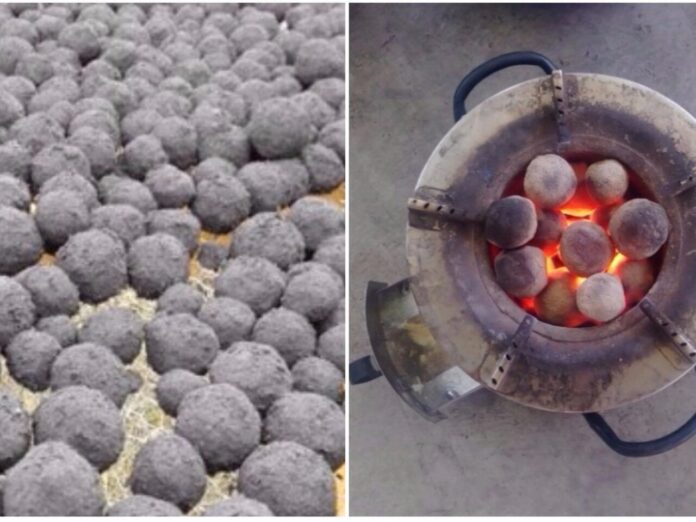Nakuru County’s NAWASSCOAL initiative is reshaping both sanitation and energy generation by transforming human faecal sludge into clean-burning fuel briquettes that offer a sustainable alternative to traditional charcoal and firewood.
The Nakuru Water and Sanitation Services Company (NAWASSCO) collects wastewater from household latrines and septic tanks via exhauster trucks, bringing it to drying beds situated in covered greenhouses.
There the sludge is dried until its moisture content falls dramatically and then carbonized in a kiln at high temperatures alongside agricultural residues such as sawdust to produce briquettes safe for household use.
The resulting briquettes are composed of approximately 50 percent human waste and 50 percent charcoal dust or carbonized sawdust.
This carefully calibrated mix and the high-temperature treatment neutralize pathogens and eliminate unpleasant odours, ensuring the fuel is safe, odorless and visually akin to conventional charcoal.
These briquettes are now used by hotels, restaurants and small eateries across Nakuru, offering a more affordable and cleaner-burning option.
Media reports and enterprise features reveal that these briquettes produce less smoke and burn longer than ordinary charcoal, helping reduce indoor air pollution and the frequency of replacing cooking pots.
Beyond fuel production, the project delivers environmental and health benefits. Each tonne of briquettes produced saves up to 88 trees, helping mitigate deforestation pressures.
The improved sanitation process has also minimized untreated sludge being discharged into Lake Nakuru, safeguarding the water body’s ecosystem.
Employment creation has been another notable social outcome local workers are engaged in sludge collection, drying bed maintenance, briquette manufacture, packaging and distribution.
Initially conceptualized to address both waste disposal and charcoal scarcity, the project has earned recognition in national and international circles, even being shortlisted for global green innovation awards.
Interest in NAWASSCOAL’s briquettes continues to grow, yet capacity remains constrained: local demand regularly exceeds supply, prompting calls for investment to expand production facilities.
In essence, NAWASSCOAL represents a “made in Kenya” innovation tackling multiple development challenges.
It converts waste into value, provides cleaner cooking fuel, offers income opportunities, and protects local forests and water resources.
As the initiative develops and scales up, it holds promise for replication across other urban centres struggling with rapid population growth, sanitation deficits and fuel insecurity.
Written By Ian Maleve



















